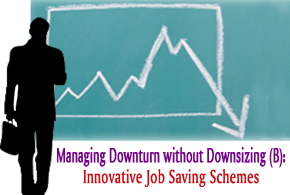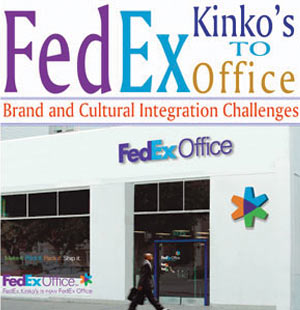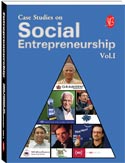Case Catalyst Archives
|
Jaswant Singh, former Indian Cabinet Minister for Finance, Defense and External Affairs Viren Rasquinha, former Indian Hockey Team Captain Ajay Sinha, Policy Coordinator Young Lives Project in India.
While providing valuable insights on undivided India and on GDP and Gross National Contentment (GNC), Mr. Jaswant Singh shared his personal background and the factors that influenced his political debut.
In the interview, Viren Rasquinha talks about his personal background, his interest in sports, particularly football and hockey from a very young age and his experience as the captain of the Indian Hockey Team. He also expressed his views on Indian sports, management education and his experience at Indian School of Business, Hyderabad, where he is pursuing management programme. Ajay Sinha from Save the Children's Young Lives Project in India speaks about the need and importance of an NGO, the operating model of an NGO, the Young Lives project and his experience in working on it. |
||||
 Known only as an Indian automobile company that manufactures tractors, Mahindra & Mahindra (M&M) has grown to manufacture vehicles with style and substance. This case study mirrors M&M's transformation from an Indian family business into a globally competitive firm. It was one among those companies that withstood the liberalisation challenges of the 1990s and successfully revamped its business into a highly focused, professionalised multinational firm, operating in diversified business segments. Anand Mahindra's leadership led the triumphant corporate transformation at M&M, but will it continue to remain globally competent amid intensifying competition and tough market conditions? |
|||||

As a sequel to Mahindra & Mahindra (A): Transformation of an Indian Family Business into a Globally Competitive Firm, this case study shows how Mahindra & Mahindra (M&M) has changed the prevailing prejudice that only companies from developed countries remain globally competent. Leveraging on resources like large talent pool at low cost and R&D capabilities, M&M successfully made a mark on the international map by manufacturing vehicles with global standards. But, can a company like M&M from an emerging market like India compete with other international players from developed economies? How far is it justified for M&M to pursue global expansion plans? |
|||||

This case study shows how Ford lost its market leadership as the focus shifted from price towards flaunting vehicles with style, speed and 'muscle'. Highlighting quality, reliability and safety problems of the 'Detroit's Big Three' and soaring gasoline prices, it elaborates on foreign automakers' dominance, particularly the Japanese. With Ford all set to improve sales and brand perception with innovative marketing strategies and promoting 'Americanism', the case study gives many intriguing issues to discuss – like the role of marketing for an automobile company and whether marketing alone can create a market for automobiles. |


“Teach me the Magic of Wonder, Give me the Spirit to Fly” – John Denver During tough times, nothing would be more refreshing than a 'totally implausible and happily improbable' film like Notting Hill of 1999. A romantic comedy starred by Julia Roberts and Hugh Grant, the film influences positive attitudes in people. Grant's character portrays amazing inner strength and self-awareness and shows how he moves on with his individuality, not getting crushed by the down times. The film also has lots to say about fame and how it impinges on the lives of normal as well as famous people. Watch the charming love story for the intimate glimpses into the human heart and how two opposites stay together forever in the complex world of publicity and disposable relationships. |
||||


Are layoffs a temporary solution to handle the ongoing troubled times or do they wreck the long- term prospects of the company (would the company get any negative image that might result in not attracting any good talent in good times)? A sequel to the case study, Managing Downturn without Downsizing (A): US Financial Crisis and Layoffs, this case study focuses on the impact of layoffs on employee morale and debates on issues like adverse indirect impact of corporate layoffs on the overall economy, whether layoffs are inevitable to sustain the crisis, success probability of innovative job saving schemes and the difficulties of the laid-off employees in finding a new job amid the crisis. |
|||||

What kinds of retailers are likely to survive in these troubled times – retailers with more stores or the ones with fewer stores in a specific geographic location? What is the best way for these retailers to stay afloat in the crisis apart from making minor changes in their operating model? With a backdrop of evolution of multi-channel retailing, the case study delves into the impact of the financial crisis on the US retailers and the various strategies adopted by them to wade through it. Exemplifying Kmart and other retailers' click and pickup services, the case study discusses how the new operating model not only helps in cutting costs in terms of shipping and packaging but also in speedy delivery to the customers. |
|||||
|
|||||
|
| |||||













